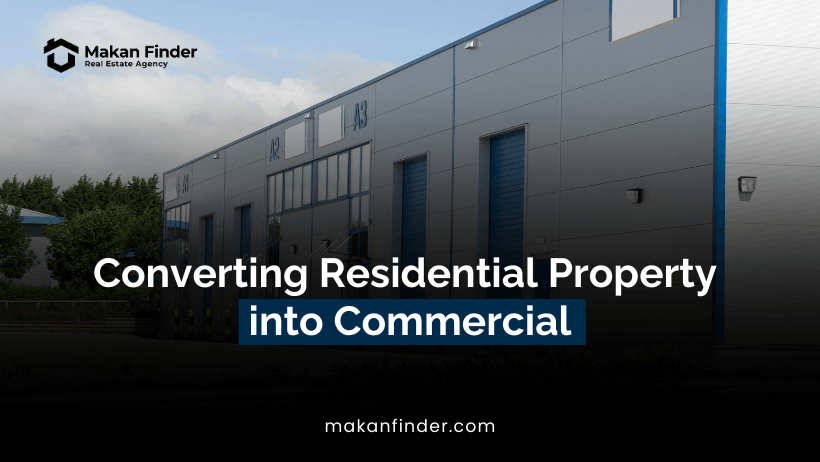Converting a residential property into a commercial one involves changing the property’s designated use to accommodate commercial activities. This process requires research on local zoning regulations to ensure compliance and obtain necessary permits. Renovations and modifications may be needed to meet the specific requirements of the intended commercial use. Updating insurance coverage is important to address potential risks and liabilities associated with commercial activities. Marketing and tenant selection strategies should be developed to attract suitable tenants or buyers for the converted property.
Looking to maximize the potential of your residential property? Converting it into a commercial property can be a lucrative option. If you’re considering this, we have the information you need.
Here are the key points to keep in mind when converting your residential property into a commercial one:
1. Society By-laws and Conversion
If your property is located in organized, gated societies with their own bylaws, converting it into a commercial property may not be possible. Most such societies prohibit this practice, especially in larger projects like Defence Housing Authority (DHA) or Bahria Town.
2. Commercial Districts
Outside of these societies, not all land or buildings can be converted into commercial property. It is generally only allowed in areas designated by local authorities as commercial districts. To determine if your property can be commercialized, contact the local authorities’ office in the city where your building is located. These commercial districts are usually situated near major roads and avenues.
3. Permissions
In areas not designated as commercial districts, regulations vary between cities. Some cities may not allow residential properties to be converted at all, while others like Lahore may grant permission with certain conditions. In such cases, you will need to obtain permission from the development authority to ensure that the commercialization does not adversely affect the surrounding residential area. Additionally, a no-objection certificate (NOC) from adjacent neighbors may also be required.
4. Advertisement
To proceed with the conversion, an advertisement must be placed in a newspaper, notifying the public of the owner’s intention to commercialize the property. If no objections are raised within a specified timeframe, the conversion can proceed.

5. Paperwork and Fees
Once all necessary approvals have been obtained, you can initiate the paperwork and process with the development authority. Two options are available at this stage: annual or permanent commercialization.
Annual commercialization requires annual renewal at a fee that is a small percentage of the property’s total commercial value. In Lahore, for example, the fee is 1.25%. For permanent conversion, the fee varies based on the area and commercial value. In Karachi, it can range between PKR 4,000 and PKR 16,000 per square yard, while in Lahore, it can range between PKR 5 million and PKR 15 million per kanal.
There is a growing demand for commercial property, evident from the increasing number of malls and plazas across the country. However, the demand often exceeds the supply in many areas. Converting residential property into commercial can be a viable option due to its higher return on investment and potential for increased value, which can vary depending on the location.





